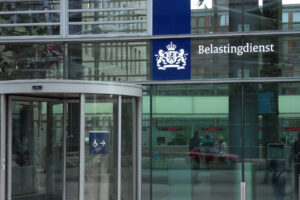The Netherlands has an all-expansive tax system to help fund its equally extensive social security program. The Dutch government expects a share of consumed goods, property, and worldwide income, including any profits made from your company.
Here’s what you need to know about corporate income tax in the Netherlands:
- Corporate tax in the Netherlands
- Who pays corporate income tax in the Netherlands?
- Corporate tax rates in the Netherlands
- Corporate tax exemptions and credits in the Netherlands
- VAT in the Netherlands
- Corporate tax year in the Netherlands
- How to file your corporate tax return in the Netherlands
- Other types of business tax in the Netherlands
- Corporate tax fines in the Netherlands
- Corporate tax advice in the Netherlands
- Useful resources
N26
N26 is the bank you’ll love to use: open your bank account in just eight minutes with no paperwork. Take control of your finances with one app where you can manage limits, set your PIN, lock/unlock cards, and make no-fee transactions anywhere in the world.
Corporate tax in the Netherlands
The Netherlands offers a range of business structures to entrepreneurs, partnerships, and corporations, all of which have their own tax rules. Whether you need to pay income tax (inkomstenbelasting) or corporate tax (vennootschapsbelasting – VPB) depends on the type of business you run:
- Self-employed freelancers (zelfstandige zonder personeel – ZZP’er) and sole traders (eenmanszaak) are liable for Dutch income tax
- In public partnerships (maatschap) and commercial partnerships (vennootschap onder firma – VOF), partners are considered individual self-employed workers and thus pay income tax
- Limited companies (besloten vennootschap – BV) are liable for corporate tax
When you register your business with the Dutch Chamber of Commerce (Kamer van Koophandel), the Dutch Tax Office will inform you which tax you’re liable for.

The 2024 corporate tax rate is 19% for profits up to €200,000 and 25.8% for anything above that. Some companies in the Netherlands can apply for an exemption to access lower corporate tax rates, but more on that below.
Who pays corporate income tax in the Netherlands?
Corporate tax for sole traders
Instead of corporate tax, sole traders in the Netherlands pay income tax on their profits. This tax is levied under Box 1 rates (taxable income from employment and homeownership). The rate you’ll pay depends on your age and income:
| You were born | Profits | Tax rate |
| After 1957 | Up to €75,518 | 36.97% |
| €75,518 or more | 49.5% | |
| In 1957 | Up to €38,098 | 19.07–35.47% depending on your birth month |
| €38,098–75,518 | 36.97% | |
| € 75,518 or more | 49.5% | |
| Between 1 January 1946 and 1957 | Up to €38,098 | 19.07% |
| €38,098–75,518 | 36.97% | |
| €75,518 or more | 49.5% | |
| Before 1 January 1946 | Up to €40,021 | 19.07% |
| €40,021–75,518 | 36.97% | |
| €75,518 or more | 49.5% |
Some self-employed entrepreneurs are entitled to tax deductions, such as the private business ownership allowance (zelfstandigenaftrek). In 2024, those eligible can deduct €3,750 from their profits when filing their tax returns. It’s worth noting that this allowance will gradually reduce between now and 2036, when it will be €3,240.
Corporate tax for partnerships
In both public (maatschap) and commercial partnerships (vennootschap onder firma – VOF), partners are considered individual self-employed workers. As such, each partner pays Dutch income tax on their share of the profits at the rates above.
The system is slightly different for people with limited partnerships (commanditaire vennootschap – CV):
- “Open” (open) CVs (i.e., a new partner can join without requiring the consent of the other partners) are subject to corporate income tax
- “Closed” (besloten) CVs (i.e., other partners must give permission before a new partner can join) are liable for income tax
In CVs, only the managing partners can claim entrepreneur allowances.
Corporate tax for limited companies
If you set up a limited company in the Netherlands, you’ll usually need to pay corporate tax on its profits.
Limited companies are eligible for some allowances, such as investment allowance. They’re not eligible for private business ownership allowance.
If you own at least 5% of the company’s shares, you’ll be considered a director and major shareholder of the company, meaning you’ll need to pay Dutch income tax if you take a salary from the company.
Corporate tax rates in the Netherlands
How much your company needs to pay in corporate tax depends on its taxable amount. This is the final profit figure on your tax return after deducting allowances and credits.

In 2024, the standard corporate tax rate is 19% for profits up to €200,000 and 25.8% for anything above that. However, some exemptions apply.
Corporate tax exemptions and credits in the Netherlands
Exemptions in the Netherlands
Foundations, non-profit associations, and similar organizations are tax-exempt if their profit in any year does not exceed €15,000. Likewise, these businesses will not be taxed if their profits are higher than €15,000 if, together with the taxable profits in the four preceding years, their total profit does not exceed €75,000.
If you qualify for one of these corporate tax exemptions, the Dutch Tax Office will apply it automatically in your tax return and provide you with a nil assessment.
Credits in the Netherlands
Innovation box
A reduced corporate tax rate is available to companies that make a profit from an innovative product or technology. This tax credit scheme is called the innovation box. If your business qualifies, you pay corporate tax at a rate of 9% in 2024.
New business tax credit
If you start a business in the Netherlands, you may be eligible to claim a €2,123 tax relief for new companies (startersaftrek). This relief is part of the entrepreneur allowance.
Offsetting losses
When filing corporate tax returns, companies can offset losses against future profits. Companies with profits of more than €1 million can only offset 50% of profits over this amount with losses from previous years.
Companies can no longer offset the depreciation of buildings their company uses when filing their tax return.
Investment and environmental credits
Some businesses can claim deductions for small investments and investments in energy-efficient and environmental assets. The eligibility rules for these credits is sometimes complicated, and more information is available in the guide from PwC.
VAT in the Netherlands
Companies who supply goods and services in the Netherlands must charge value-added tax (VAT – omzetbelasting or, more commonly, Belasting Toegevoegde Waarde – BTW).

VAT rates vary depending on the type of goods or services:
- The standard 21% rate applies to most taxable products
- A reduced rate of 9% applies to common goods, including art, books, food, medicines, and non-alcoholic drinks. This lower rate also pertains to certain mainstream service providers, such as bicycle repair shops, hairdressers, taxis, and other useful occupations.
- Some goods and services are exempt from VAT, such as goods supplied from the Netherlands to other countries in the European Union (EU)
Your business can submit a VAT return on a monthly, quarterly, or annual basis. Self-employed workers can apply for small-sized entrepreneurs regulation (kleine ondernemersregeling – kor), which can cut the amount of VAT you’ll need to pay. However, this option isn’t available for people who run limited companies.
Corporate tax year in the Netherlands
Corporate tax is based on profits during a 12-month period. As standard, the corporate tax year runs alongside the calendar year of 1 January to 31 December, but companies can instead choose to file their taxes using a broken financial year (for example, from May to April).
How to file your corporate tax return in the Netherlands
At the start of your company’s financial year, you will receive a provisional corporate tax assessment from the tax authority. This is generally based on the returns you’ve filed in previous years. If you think your profits will have risen or fallen or you disagree with the assessment, you can request an adaptation.

If your company’s fiscal year is the same as the calendar year, you need to file your corporate tax return by 1 June. There are three ways to file your tax return in the Netherlands:
- By submitting your return on the Dutch Tax Office website. You should be provided with login details for this website when you first register your company.
- By using a third-party accounting program
- By using an accountant, payroll manager, or tax consultant
It’s possible to apply to delay your filing extension either by logging in online or by filling in a form and taking it to your local tax office. The Dutch tax Office should reply to your request within three weeks, and the standard extension is five months.
Other types of business tax in the Netherlands
Dividend tax
Companies that pay out profits as dividends to their shareholders must pay dividend tax at a rate of 15%. This tax is withheld from the money paid out to shareholders and can be deducted when filing income tax and corporate tax returns. You can find out more on the Dutch government website.
Environmental taxes
Businesses may be liable for a range of environmental taxes, which vary depending on the nature of the business. These can include taxes on mains water, energy tax, waste disposal charges, and coal tax. The Belastingdienst maintains a list of environmental tax rates (in Dutch).
Corporate tax fines in the Netherlands
If you fail to pay your corporate tax bill on time, you must pay interest on the late payment, which starts from the day after the payment is due.
You can apply – either online or by mail – for a filing extension (a delay) at the Dutch Tax Office website. If granted, you’ll receive a standard extension of five months.
Interest on late payments is usually charged at 3%. You can find out more about how interest accrues on the tax authority’s website.
Self-employed workers who fail to pay their income tax bill on time receive a fine of 3% of the amount outstanding. If you file your tax return late, you’ll also need to pay a €65 administration fee.
Corporate tax advice in the Netherlands
If you’re unsure about your tax liability in the Netherlands, it makes sense to take advice from an English-speaking accountant or financial adviser. A good adviser will be able to explain everything from choosing the right type of business structure to filing your corporate tax and VAT returns on your behalf.
It’s also worth taking a look at expat groups in your local area on social media for high-quality recommendations.
If you’re a freelancer or self-employed worker, you can find a range of resources on the Dutch government’s website.
Useful resources
- Dutch Tax Office – official government website of the Dutch tax authority
- Dutch Chamber of Commerce – great resource for entrepreneurs wanting to start a company
- Business.gov – official government website with loads of information for business owners in the Netherlands








